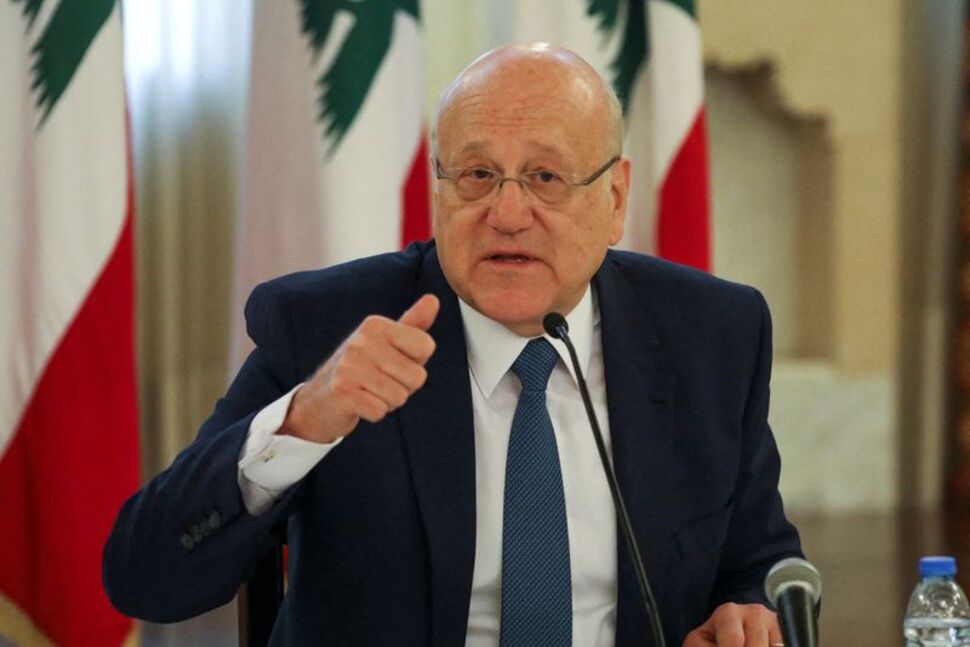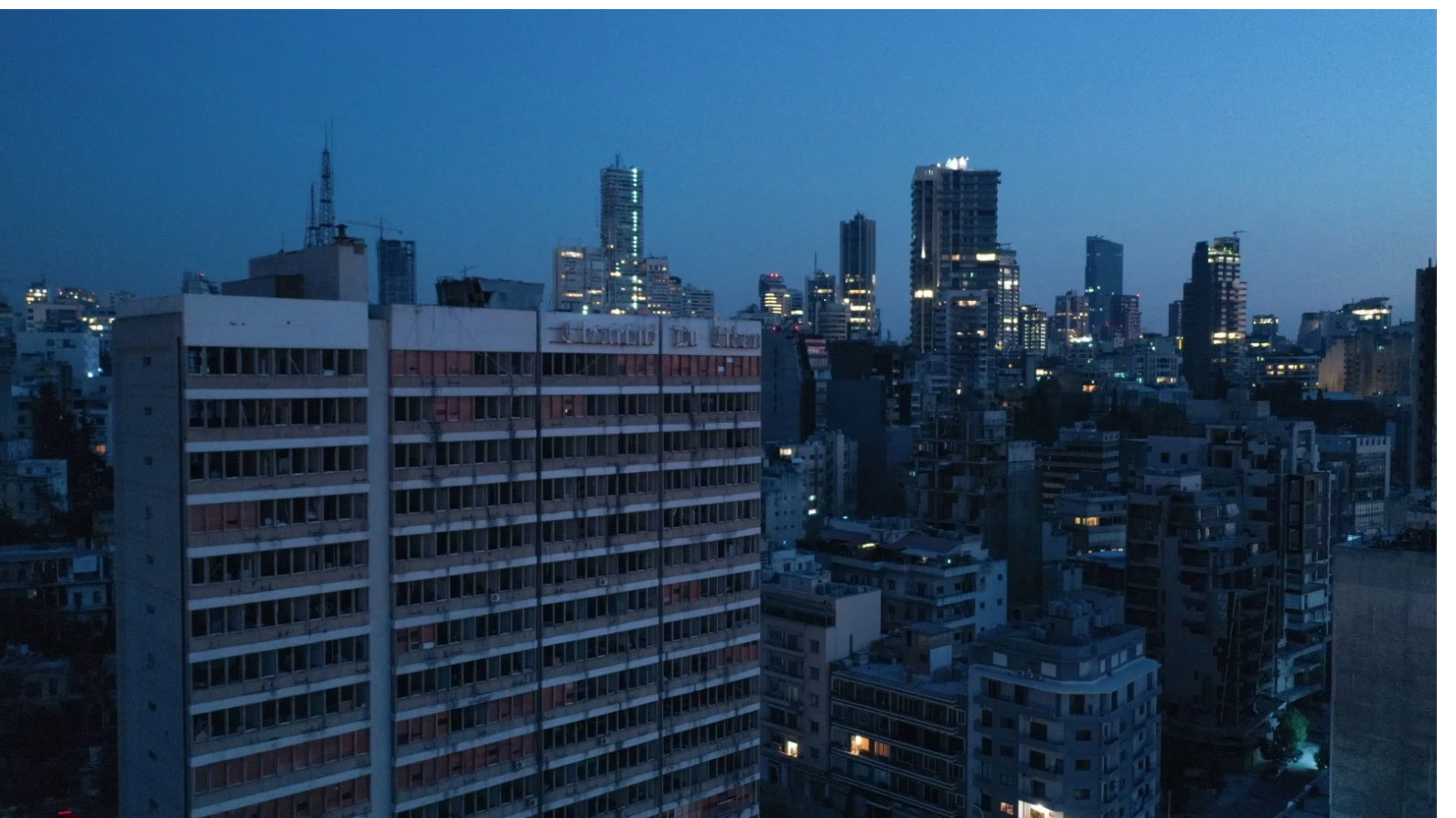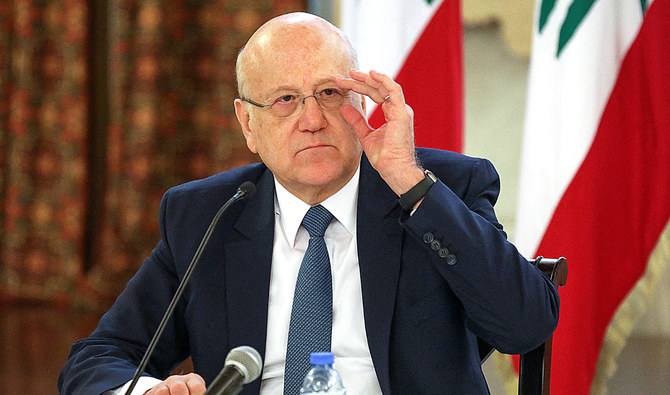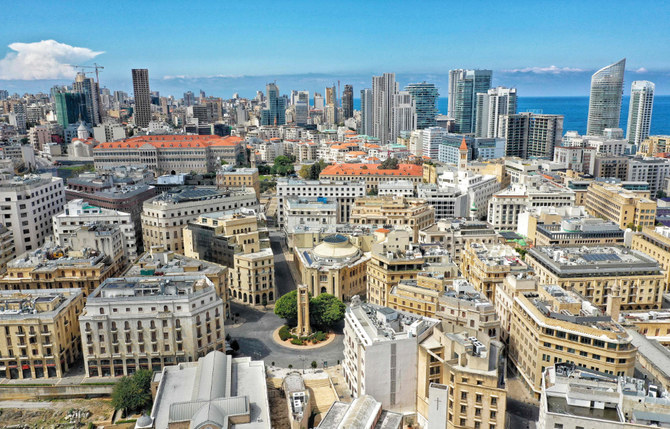
BEIRUT (by reuters) — Lebanon’s Najib Mikati was named prime minister on Thursday, urging fractious politicians to set aside differences to secure an IMF deal which he said was the only chance to save the country from financial collapse. Facing a politically difficult path to agreeing on a new cabinet, the billionaire tycoon who led three previous governments said Lebanon did not have time for “drowning in conditions and demands” of rival groups over ministerial posts. “We are facing the challenge of either complete collapse or gradual salvation,” said Mikati, referring to the IMF deal that promises $3 billion in support, contingent on reforms that have long been put off by Lebanon’s political elite.
Now in its third year, the financial meltdown has sunk the currency by more than 90 percent, spread poverty, paralyzed the financial system and frozen depositors out of their savings, in Lebanon’s most destabilizing crisis since the 1975-90 civil war. Donor states want Lebanon to enact reforms to address root causes of the crisis, including decades of state waste and corruption, before aid is released. “We have wasted enough time and lost many chances of support from brotherly and friendly countries whose stance has always been clear: ‘Help yourselves so we can help you,'” said Mikati, a Sunni Muslim as required by Lebanon’s sectarian system.

BEIRUT (AP) — Lebanon and Sri Lanka may be a world apart, but they share a history of political turmoil and violence that led to the collapse of once-prosperous economies bedeviled by corruption, patronage, nepotism and incompetence. The toxic combinations led to disaster for both: Currency collapse, shortages, triple-digit inflation and growing hunger. Snaking queues for gas. A decimated middle class. An exodus of professionals who might have helped rebuild. There usually isn’t one moment that marks the catastrophic breaking point of an economic collapse, although telltale signs can be there for months — if not years. When it happens, the hardship unleashed is all-consuming, transforming everyday life so profoundly that the country may never return to what it was. Experts say a dozen countries — including Egypt, Tunisia, Sudan, Afghanistan and Pakistan — could suffer the same fate as Lebanon and Sri Lanka, as the post-pandemic recovery and war in Ukraine spark global food shortages and a surge in prices.
ROOTS OF CRISIS
The crises in Lebanon and Sri Lanka are rooted in decades of greed, corruption and conflict. Both countries suffered a long civil war followed by a tenuous and rocky recovery, all the while dominated by corrupt warlords and family cliques that amassed enormous foreign debt and stubbornly held on to power.

by reuters -- BEIRUT – Lebanon’s caretaker premier Najib Mikati will likely be nominated for a new term on Thursday, political sources said, keeping him at the helm as the country prepares for steep financial and political challenges in the months ahead. If re-installed, Mikati will have to steer Lebanon through an economic recovery plan that aims to secure a $3 billion International Monetary Fund (IMF) bailout to ease the country’s financial meltdown, one of the worst in modern times. Factions of Lebanon’s political and financial heavyweights remain divided over key issues, including how to address financial sector losses estimated at over $70 billion.
Political sources said Mikati, a billionaire from the northern port of Tripoli, would garner the support of over 50 of 128 parliamentarians, including the powerful Iran-backed Hezbollah, the allied Amal party, and Sunni Muslim lawmakers. They are set to nominate Mikati during consultations with President Michel Aoun on Thursday at the presidential palace in Baabda, party sources told Reuters. If more parliamentarians back Mikati than any other candidate on Thursday, even if they do not comprise an absolute majority, then Aoun will name him to form a government. That process often draws out for months in Lebanon as the main political factions divvy up roles in cabinet and beyond. In theory, Mikati’s new term may not last long: after Aoun’s term ends on Oct. 31, parliament will elect a new president – who names a new premier to form another cabinet.
Aoun’s Free Patriotic Movement will not back Mikati, according to party head Gebran Bassil. The Lebanese Forces Party, a Christian faction close to Saudi Arabia and vociferously opposed to Shi’ite Muslim Hezbollah, announced on Wednesday it would nominate no one. The LF has the largest single-party bloc in parliament. A host of independent newcomer parliamentarians were set to vote for Nawaf Salam, a judge and Lebanon’s former ambassador to the U.N.

by arabnews.com - Najia Houssari -- BEIRUT: The municipality has recently removed Hezbollah slogans, images and billboards that had been put up for years on the road to the Rafic Hariri International Airport in Beirut. They have been replaced with welcome signs by the Tourism Ministry to greet tourists and expatriates returning to Lebanon for the summer vacation. Pictures of Hezbollah leaders and deceased party members, as well as the party’s yellow banners, have long occupied the airport road space on both sides and in the median strip. The airport road borders the neighborhoods hosting the offices of Hezbollah and the Amal Movement — the two main Shiite parties — and their security zones. The sizes of the pictures almost exceeded that of the houses and small shops located on both sides of the road.
The images were not limited to the party’s Lebanese members but also included Iranian and Iraqi military, religious and political leaders such as Qassem Soleimani, Ayatollah Khomeini, Ali Khamenei and Abu Mahdi Al-Muhandis, so much so that many people who crossed this road were confused as to whether it was part of Lebanon or Iran. Politicians opposed to Hezbollah often called for the removal of the images, which they described as “provocative to the Lebanese.” They blamed the state for its compromise with the party or its inability to confront its authority, prominently displayed on the route taken by diplomats and political figures coming to Lebanon. The removal of the propaganda material came in response to a call by caretaker Minister of Tourism Walid Nassar, who is affiliated with the Free Patriotic Movement, allied to Hezbollah.
Khazen History


Historical Feature:
Churches and Monasteries of the Khazen family

St. Anthony of Padua Church in Ballouneh
Mar Abda Church in Bakaatit Kanaan
Saint Michael Church in Bkaatouta
Saint Therese Church in Qolayaat
Saint Simeon Stylites (مار سمعان العامودي) Church In Ajaltoun
Virgin Mary Church (سيدة المعونات) in Sheilé
Assumption of Mary Church in Ballouneh
1 - The sword of the Maronite Prince
2 - LES KHAZEN CONSULS DE FRANCE
3 - LES MARONITES & LES KHAZEN
4 - LES MAAN & LES KHAZEN
5 - ORIGINE DE LA FAMILLE
Population Movements to Keserwan - The Khazens and The Maans
ما جاء عن الثورة في المقاطعة الكسروانية
ثورة أهالي كسروان على المشايخ الخوازنة وأسبابها
Origins of the "Prince of Maronite" Title
Growing diversity: the Khazin sheiks and the clergy in the first decades of the 18th century
Historical Members:
Barbar Beik El Khazen [English]
Patriach Toubia Kaiss El Khazen(Biography & Life Part1 Part2) (Arabic)
Patriach Youssef Dargham El Khazen (Cont'd)
Cheikh Bishara Jafal El Khazen
Patriarch Youssef Raji El Khazen
The Martyrs Cheikh Philippe & Cheikh Farid El Khazen
Cheikh Nawfal El Khazen (Consul De France)
Cheikh Hossun El Khazen (Consul De France)
Cheikh Abou-Nawfal El Khazen (Consul De France)
Cheikh Francis Abee Nader & his son Yousef
Cheikh Abou-Kanso El Khazen (Consul De France)
Cheikh Abou Nader El Khazen
Cheikh Chafic El Khazen
Cheikh Keserwan El Khazen
Cheikh Serhal El Khazen [English]
Cheikh Rafiq El Khazen [English]
Cheikh Hanna El Khazen
Cheikha Arzi El Khazen
Marie El Khazen